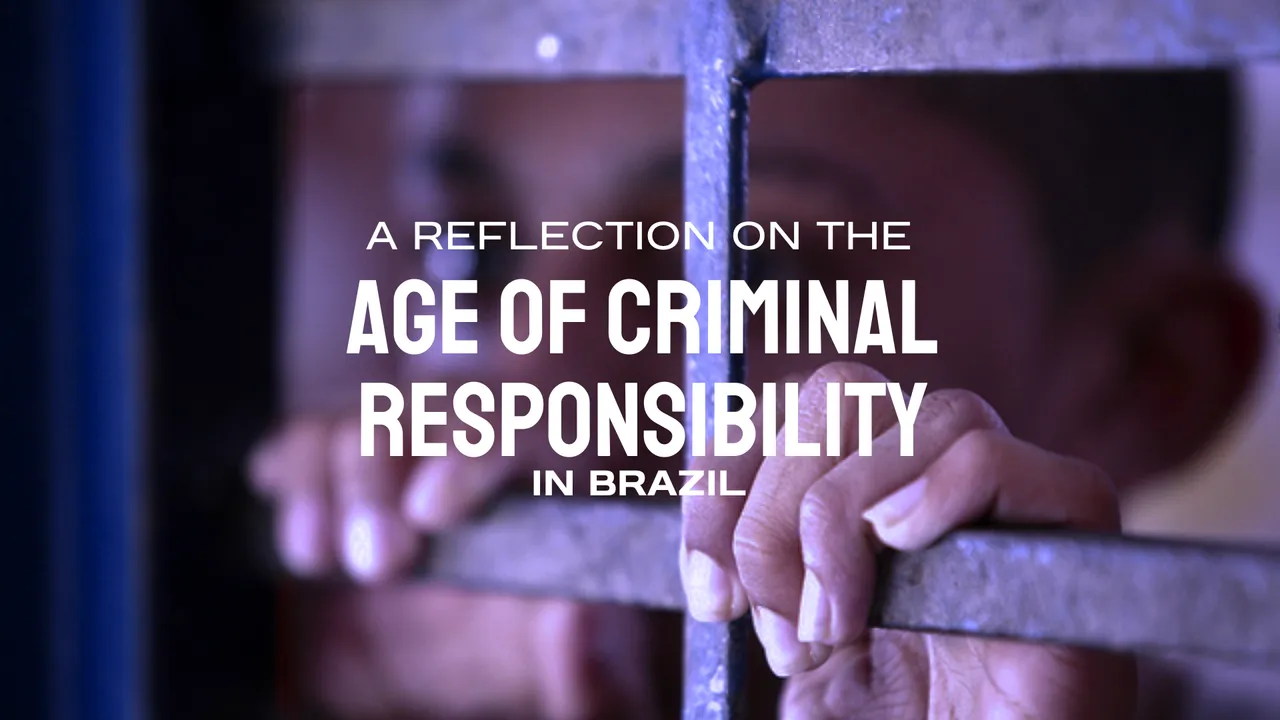
[EN]
As a police reporter, I deal daily with the harsh reality of various children and adolescents involved in crimes in Brazil. The situation is complex and raises several questions about the age of criminal responsibility in the country. Currently, here, the age of criminal responsibility is set at 18 years old. But is this really the ideal age to consider someone as an adult and responsible for their own actions?
In my view, speaking both as an investigative journalist and simply as a citizen, the age of criminal responsibility at 18 is late. The Brazilian reality shows that many young people under 18 are involved in criminal activities, often influenced by lack of opportunities, social inequality, lack of quality education, among other factors. I believe that 18 years old is an outdated age to determine criminal responsibility, and it should be reduced to 16 years old.
This reduction of 2 years would allow for a more effective response from the judicial system regarding juvenile crime. However, I believe that with this change should come investment in public policies that address the causes of juvenile crime, such as social assistance, increased job opportunities, and broad access to education.
Another aspect that I believe should be changed concerns the socio-educational measures imposed on juvenile offenders who were apprehended before reaching the age of criminal responsibility. Simply releasing them when they turn 18 does not seem to be an effective solution to me. Instead, these young people should continue serving their sentences in appropriate environments, participating in reintegration programs, and receiving psychological support until they are truly ready to reintegrate into society. This approach not only contributes to reducing recidivism but also promotes the rehabilitation and social reintegration of juvenile offenders.
What I often see in my day-to-day life as a reporter is that many minors commit crimes knowing that until they reach 18 years old, they will almost go unpunished, being detained for a short period of time. This gives the impression that, even at a young age, a life of crime pays off quite well.
However, on the other hand, there is also an important question that arises, which is maturity. Each individual is unique and develops at a different pace. Therefore, I believe that an individual assessment is very necessary, taking into account not only age but also the social, emotional, and psychological context of each person.
In summary, I believe that the discussion about the age of criminal responsibility in Brazil should be approached in a more cautious and careful manner, due to the extreme importance of the subject. Juvenile crime has devastating effects and urgently needs effective measures to reduce the involvement of children and adolescents in this environment.
All the content, pics and editions are of my authorship.
Written in PT-BR. Translated do EN-US using ChatGPT.
Cover: created by Canva.
Como repórter policial, diariamente eu lido com a dura realidade de várias crianças e adolescentes envolvidos com crimes no Brasil. A situação é complexa e levantas diversas questões sobre a idade da maioridade penal no país. Atualmente, por aqui, a maioridade é fixada em 18 anos. mas será que essa é realmente a idade ideal para considerar alguém como adulto e responsável pelas próprias ações?
Na minha visão, e aqui falo como jornalista investigativa e também como apenas uma cidadã, a maioridade penal aos 18 anos é tardia. A realidade brasileira aponta que muitos jovens menores estão envolvidos em atividades criminosas, por vezes influenciados pela falta de oportunidades, desigualdade social, falta de uma educação de qualidade, além de outros fatores. Acredito que 18 anos seja uma idade desatualizada para determinar a responsabilidade penal e a mesma deveria ser reduzida para 16 anos.
Essa diminuição de 2 anos permitiria uma resposta mais eficaz do sistema judiciário em relação à criminalidade infantil. Porém, acredito que, com a mudança, deveria vir o investimento em políticas públicas que abordem causas da criminalidade juvenil, como assistência social, maior oferta de emprego e amplo acesso à educação.
Outro fator que considero que deveria ser mudado é no que diz respeito em relação às medidas socioeducativas imputadas a menores criminosos que foram apreendidos antes da maioridade penal. Simplesmente liberá-los ao completarem 18 anos não me parece ser uma solução eficaz. Em vez disso, esses jovens deveriam continuar cumprindo a pena em ambientes adequados, participando de programas de ressocialização e recebendo apoio psicológico, até que estejam, de fato, aptos para reintegrar a sociedade. Esta abordagem não apenas contribui para a redução da reincidência criminal, mas também promove a reabilitação e a reinserção social dos jovens infratores.
O que vejo muito no meu dia-a-dia como repórter é que muitos menores praticam crimes já sabendo que, até atingirem 18 anos, sairão quase que impunes, ficando apreendidos por pouco tempo. Isso dá a sensação de que, ainda jovens, a vida no crime compensa bastante.
Mas, por outro lado, surge também uma questão importante, que é a maturidade. Cada indivíduo é único e se desenvolve em ritmo diferente. Por isso, acredito que seja muito necessário uma avaliação individual, levando em conta, além da idade, o contexto social, emocional e psicológico de cada pessoa.
Em suma, acredito que a discussão sobre a maioridade penal no Brasil deveria ser discutida de formas mais cautelosas e criteriosas, devido à extrema importância do assunto. A criminalidade juvenil tem efeitos devastadores e precisa urgente de medidas eficazes que diminuam o envolvimentos de crianças e adolescentes nesse meio.
Todo o conteúdo, imagens e edições são de minha autoria.
Escrito em PT-BR. Traduzido para EN-US usando o ChatGPT.
Capa: criada com Canva.
